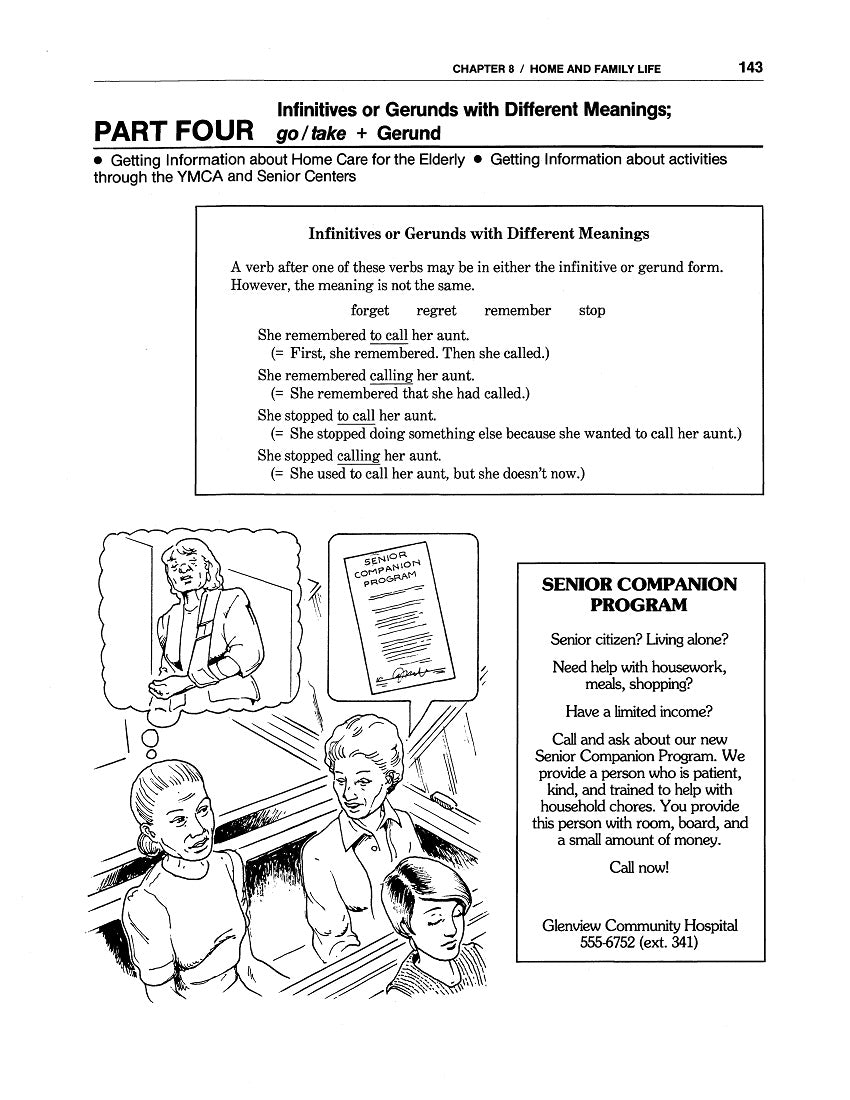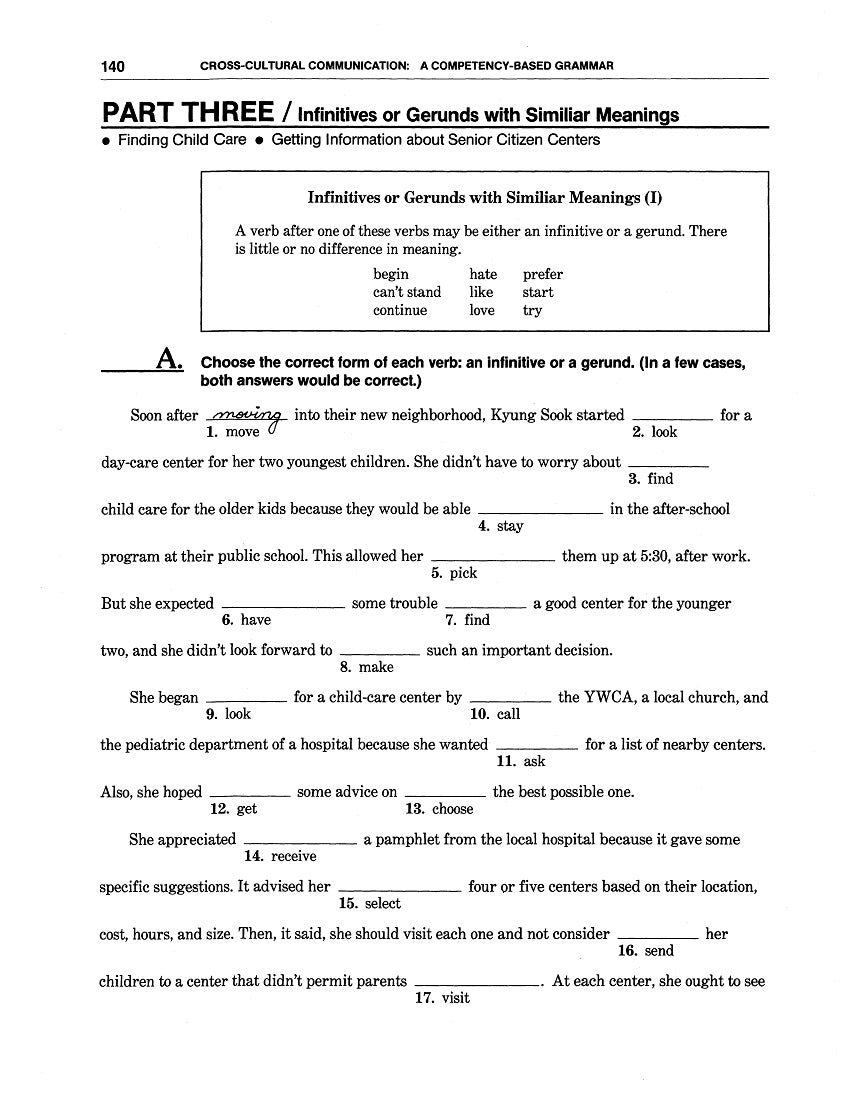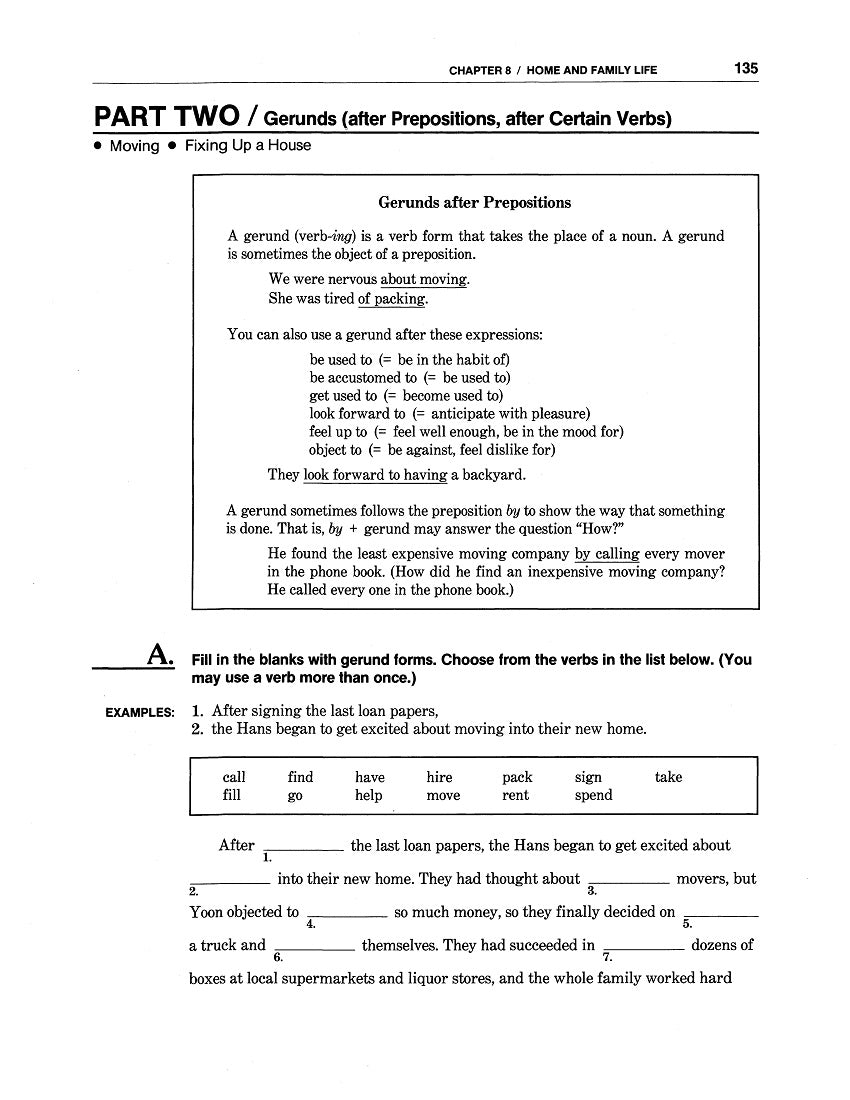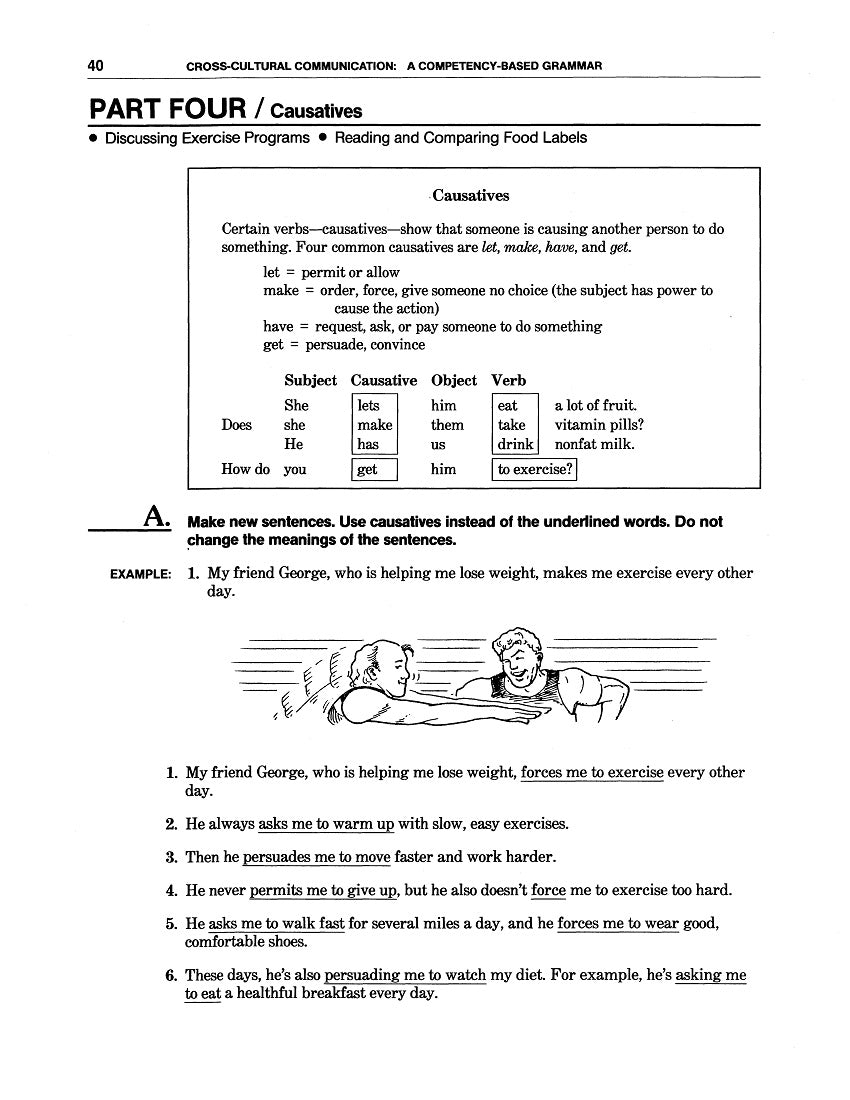1
/
of
4
Work/Life English
D-11.12 (Re)Notice, Analyze & Utilize Causatives, Gerunds (After Prepositions & Certain Verbs), Infinitives vs Gerunds with Similar and/or Different Meanings
D-11.12 (Re)Notice, Analyze & Utilize Causatives, Gerunds (After Prepositions & Certain Verbs), Infinitives vs Gerunds with Similar and/or Different Meanings
Regular price
$3.00 USD
Regular price
Sale price
$3.00 USD
Unit price
/
per
Part Four of Chapter 2 (“the Body”), pages 40-41 + Parts Two, Three & Four of Chapter 8 (“Home & Family Life”), pages 135-145 of WorkLife English Grammar 4: Cross-Cultural Communication.
13 pages
Who It’s For: (Teachers & Helpers of) Advancing Language Refiners With “Academic / Analytical Bent” for Constructing Effective Prose with Seasoned Grammar
Why It’s Useful: Verbally or in writing, grammar architects may improve what they say by applying verbals or other verb-related grammar patterns to multi-leveled scaffolding. Here are a few Lessons built up to be a little different or somewhat more fortified. They cover “Causatives” (let, make, force, get, help), verbs that serve to state what a subject “causes” to happen. Then there are “Gerunds After Prepositions & Certain Verbs,” which offers specialized Phraseology. The last two sections compare uses of Gerunds vs. Infinitives that have both equivalent and/or different meanings
What You’ll Do:
[1] Use the two-page Lesson on “Causatives” from Chapter 2 (“The Body”) to introduce what may seem like new but can be a quite constructive kind of grammar. You / Your students can restate or complete sentences with phrasing that puts main verbs such as let, make, have, or get before Objects + Base Verbs or Infinitives.
[2] Within pages 135-139 of Part Two of Chapter 8 (“Home & Family Life”), you’all can get reasons for using—+ opportunities to use—Gerunds (Verb-ing Forms functioning as Nouns) after combinations like get used to or feel like, and (given) Verbs like appreciate, avoid, can’t help.
[3] With doubled-usage verbs like begin, hate, can’t stand, try (before Gerunds and/or Infinitives) Part Three gives info about Child-Care & Senior Centers. Part Four, which suggests more ways of getting community help, features verbs like forget, stop, remember, and regret. Their meanings depends on whether they precede Gerunds or infinitives. Finally, the Lesson covers specialized uses of go and take + Object before -ing nouns derived from verbs.
Couldn't load pickup availability








